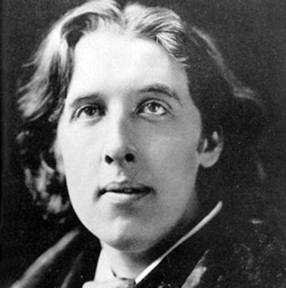The New Remorse
The sin was mine; I did not understand.
So now is music prisoned in her cave,
Save where some ebbing desultory wave
Frets with its restless whirls this meagre strand.
And in the withered hollow of this land
Hath Summer dug herself so deep a grave,
That hardly can the leaden willow crave
One silver blossom from keen Winter’s hand.
But who is this who cometh by the shore?
(Nay, love, look up and wonder!) Who is this
Who cometh in dyed garments from the South?
It is thy new-found Lord, and he shall kiss
The yet unravished roses of thy mouth,
And I shall weep and worship, as before.
This poem is in the public domain. Published in Poem-a-Day on June 17, 2023, by the Academy of American Poets.
Oscar Wilde’s poem “The New Remorse” was first published under the title “Un Amant de Nos Jours” in The Court and Society Review, vol. 5, no. 180 (December 13, 1887), and later again in The Spirit Lamp, vol. 2, no. 4 (December 6, 1892), where it received its canonical title. The poem was given as a gift by Wilde to poet Lord Alfred Douglas, one of Wilde’s lovers, as a way of courting him; as Douglas writes in his Autobiography (Martin Secker, 1929), “From the day when I first met Oscar Wilde, as I have described, he ‘made up to me’ in every possible way. He was continually asking me to dine or lunch with him, and sending me letters, notes and telegrams. He flattered me, gave me presents, and made much of me in every way. He gave me copies of all of his books, with inscriptions in them. He wrote a sonnet to me, and gave it to me at dinner one night in a restaurant. [. . .] [I]t begins: ‘The sin was mine, I did not understand.’” Douglas, then the editor of The Spirit Lamp, subsequently published the poem—however, as is made apparent in his autobiography, he seems to have been unaware that the poem had been written and even published well before Wilde gifted it to him in the first place. Years later, Wilde would rededicate the poem to yet another lover, Christian Gauss, this time under the title “Ideal Love.”

